Have you ever been so obsessed with a brand that you pledge a sense of loyalty to it because of your experience? Either you loved the customer service you received, the products themselves, the company mission, or simply loved the branding. All these experiences lead to a connection that allows brands to build a community.
A brand’s community is built upon trust, transparency, and offering a great experience to customers. Members in your brand community will offer their loyalty, become high-value customers, engage with your content, and tell their circle of influence about your company.
"A brand community is a group of customers who are invested in a brand beyond what is being sold. These customers want to become a part of the brand itself."
Generating a sale doesn’t always happen in the way we assume or through one acquisition channel. Your brand’s digital content is usually reaching people through a different channel than your website first. Maybe it was an Instagram post, a TikTok video, multiple emails or even being served an ad. These digital touch points play an essential role in building a brand community and instilling trust in your business. After all, 46% of consumers say they would pay more for brands they trust.

Building a brand’s community through email marketing is one way to build loyalty. Email marketing can be part of the two-way communication that bridges a connection between you and your customers. Here are four approaches you can implement into your email marketing strategy to build your community.
- Humanize the emails you send.
- Show and tell in your email campaigns.
- Add additional elements and stand out.
- Share your milestones with your community.
Humanize Your Email Campaigns
A community brings a shared identity and a sense of seeing yourself in others. It’s why we thrive in communities, whether it’s a sports team or just our circle of friends. Humanizing your email campaigns lets your customers feel connected to your business.
Sometimes the best emails are the ones without a flashy design or a newsletter template. Often, simple is better and XXL Scrunchie designed this email with emotion and empathy at the forefront.
This email example tells a story and shows the excitement of an order coming through. A feeling every entrepreneur and business owner has felt before. It’s a perfect example of humanizing automated marketing communications. It also provides the inclusion of the customer’s name in the emotional storytelling. It makes customers feel closer to the brand and confident that their order is appreciated.
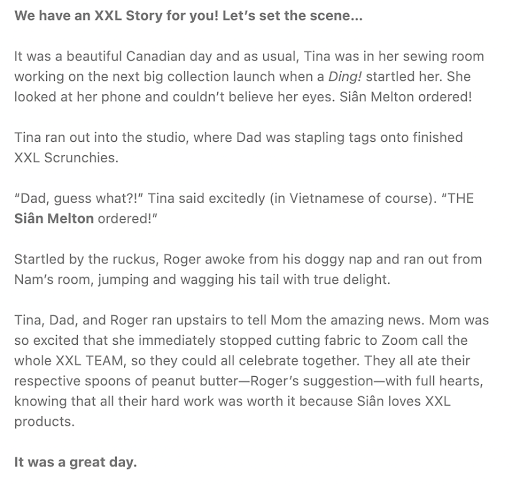
Loop is another great example of ditching flashy designs for something more personal. It’s a great reminder that loyalty marketing doesn’t always have to actually mention your points or referral programs. This thank you email from Loop truly sounds like it was written from the founder’s heart. A quick referral plug at the end sounds natural and flows well.
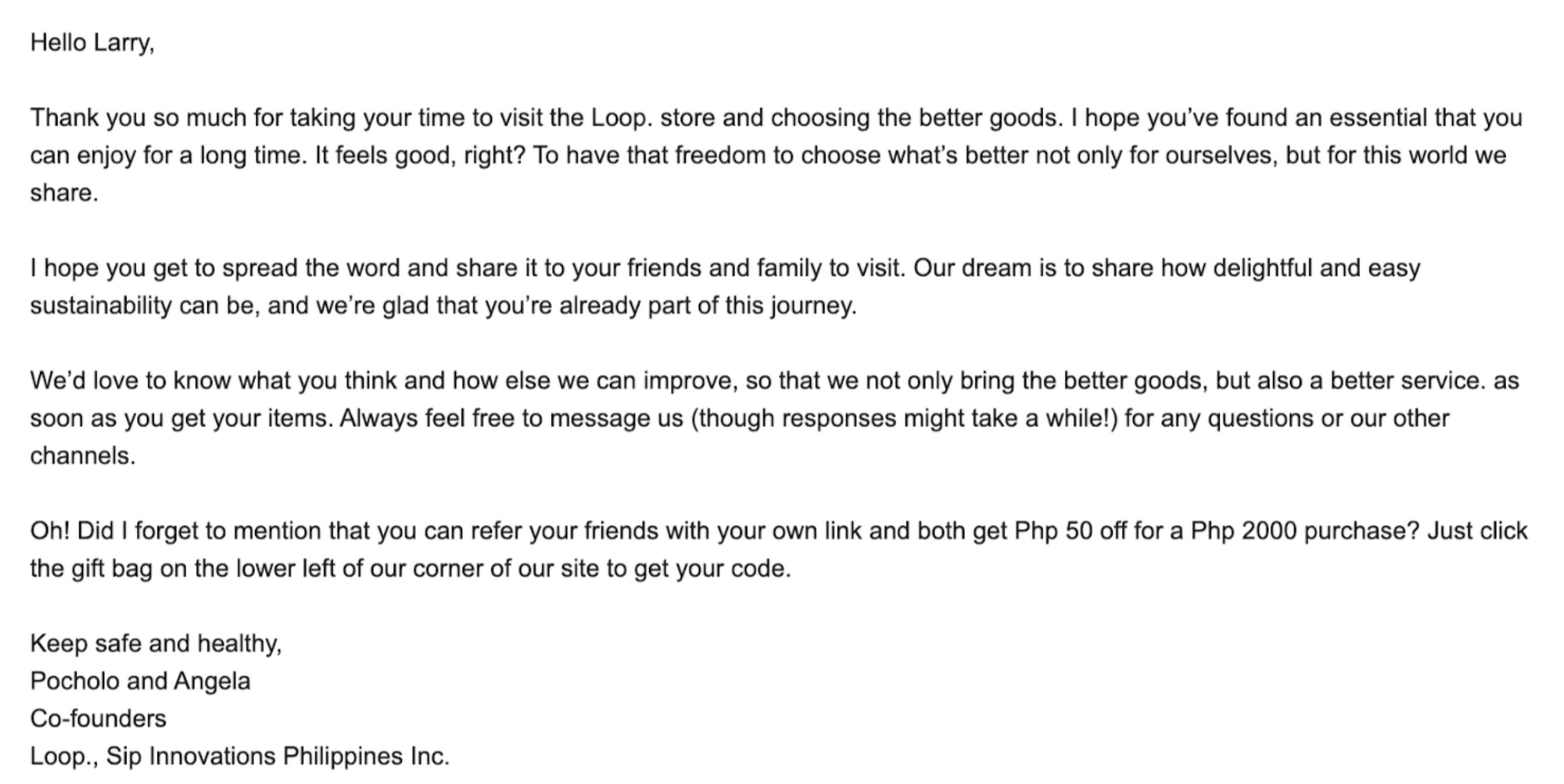
Show and Tell in Email
Emails are the perfect communication tool to capture and show the team behind a brand. Introducing your team members helps customers identify the people working in your business, greeting customers if you have brick and mortar, or team members fulfilling orders.

Introducing the founder's story through email is a great way to build authenticity by removing the curtain and showing some behind-the-scenes of a business. According to Oberlo, “88% of consumers say authenticity is important when deciding what brands they like and support.” This email example from Vicky Cakes shows the husband and wife duo behind the popular brand and tells a story to its customers.
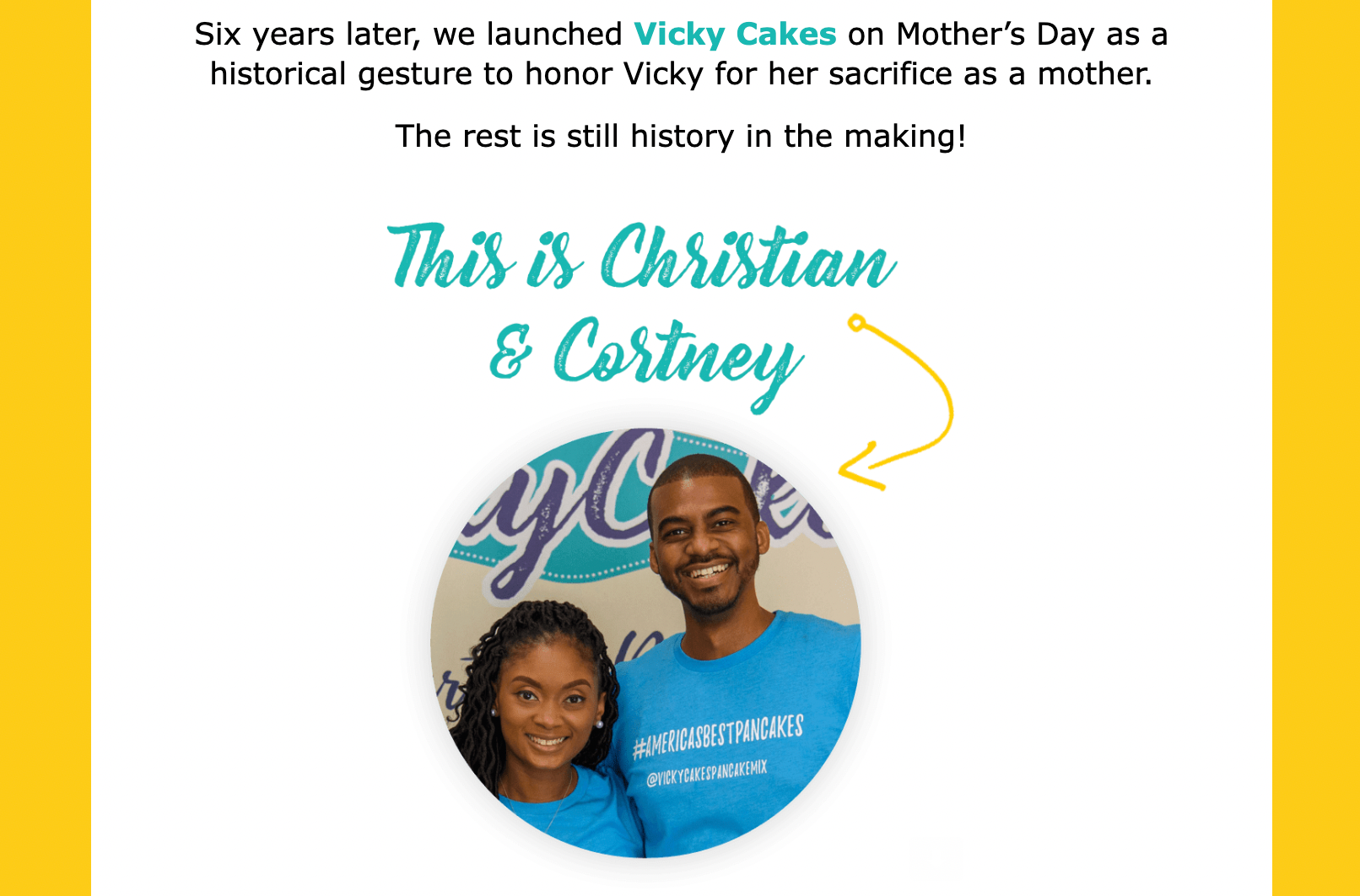
Brands have taken on social causes and have incorporated them into part of their mission. Email marketing works well in showing your community the causes and organizations that your brand supports through a customer’s purchase. Dropps recently featured organizations and spotlights in their newsletter for Mental Health Awareness Month. They used their emails to spotlight and uplift topics that are often hidden.
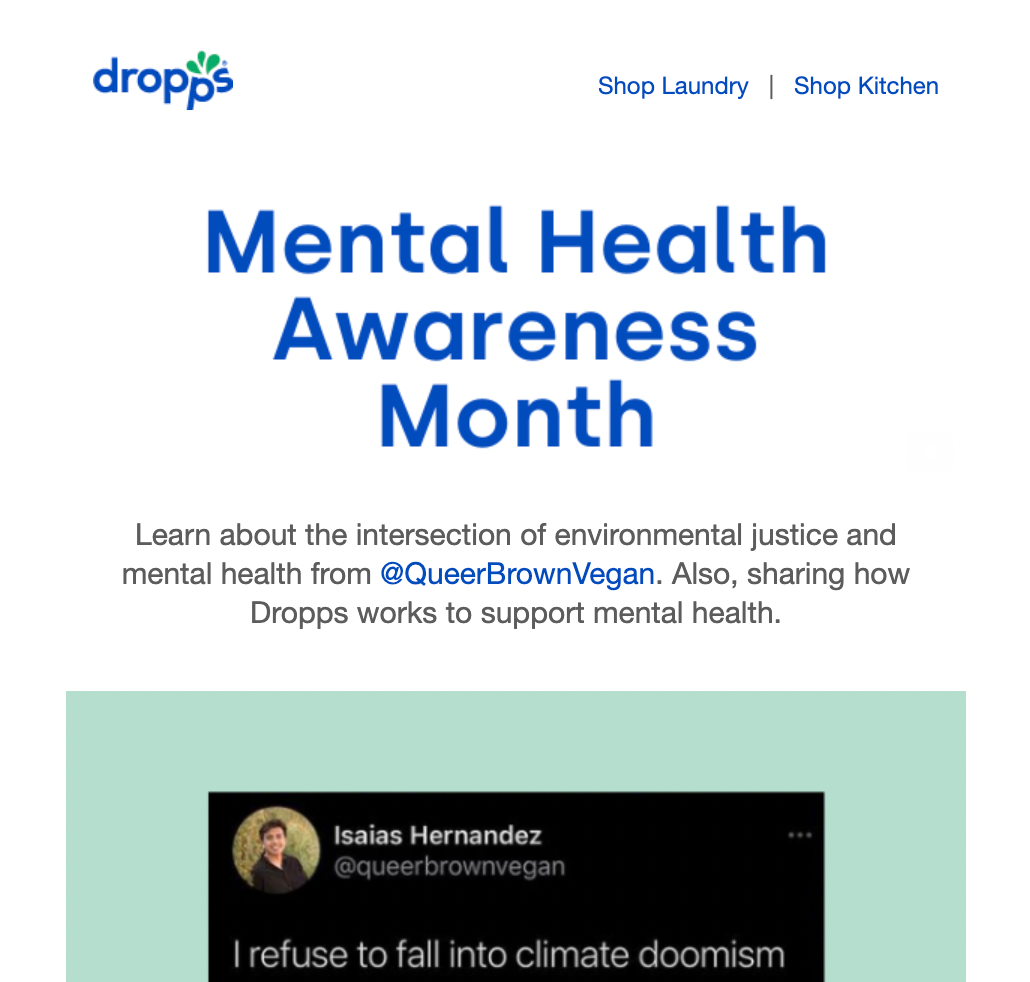
Add Additional Elements
Building a strong brand community requires more than just providing a great product. Brands are building their own media channels that cross through email, social, video, and even in physical spaces with IRL (in real life) events and pop-up stores.

Remove barriers so customers can connect with each other and yourself. Provide value to customers and a place where they can contribute or even learn from you. Communicate all this value through email by adding additional elements such as:
- video
- links
- GIFs
- UGC - user-generated content
Kettlebell Kings is a great example of linking video content into email campaigns. They have grown their YouTube channel to over 30,000 subscribers by offering their members videos on workouts using their kettlebells. Their emails are not focused on sales but rather on creating a place where people can learn. They’re building a community through social and email marketing together.
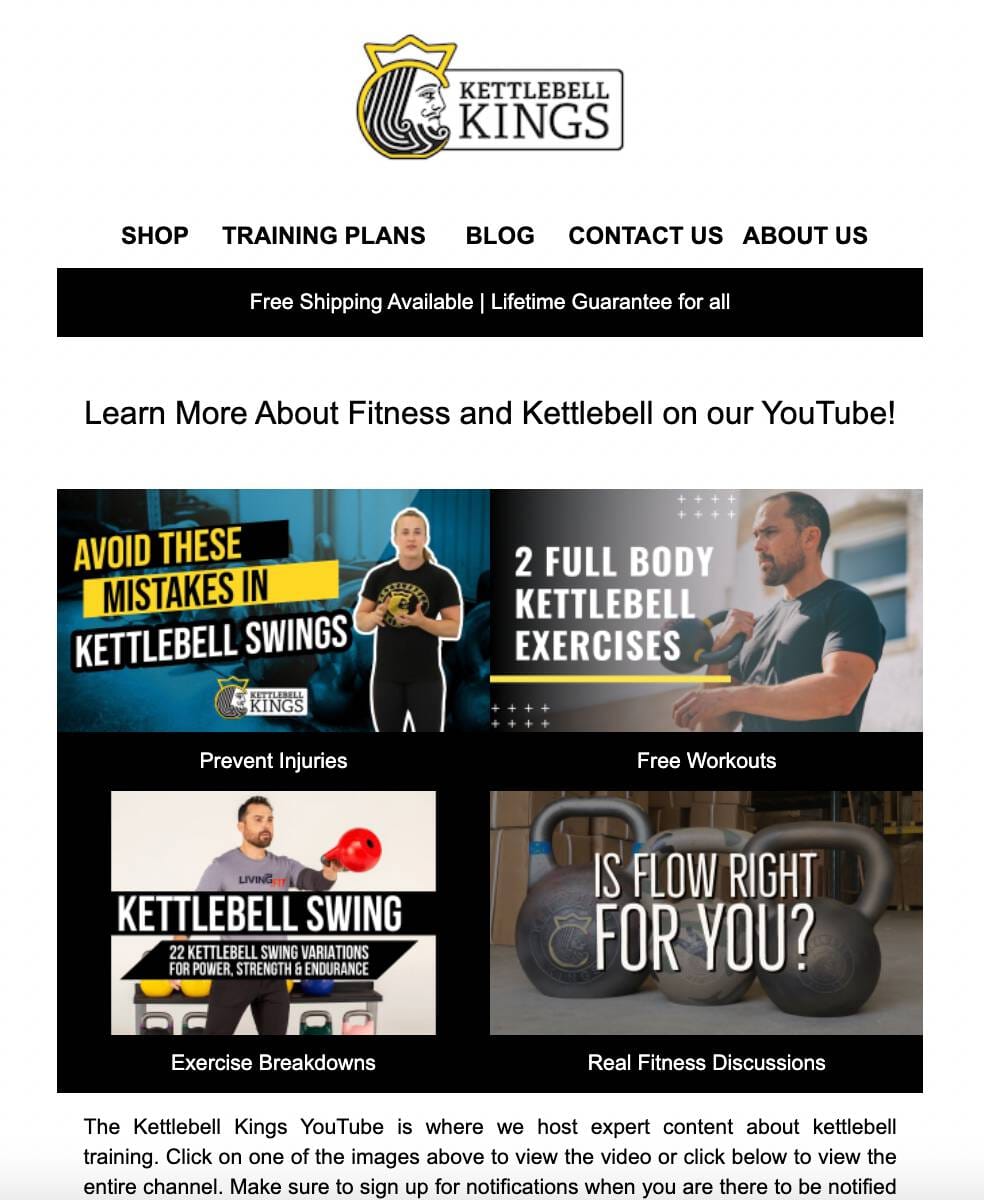
Adding user-generated content to your emails is a great way to build a strong community and encourage users to share their own content. Casely is a great example of showing off all the user-generated content in their email campaigns. They show real customers using their products and encourage users to tag Casely in any post on social media.
This cross between social media and email marketing is a great example of building a brand community. User-generated content is super valuable for your brand because it’s content coming from customers organically.
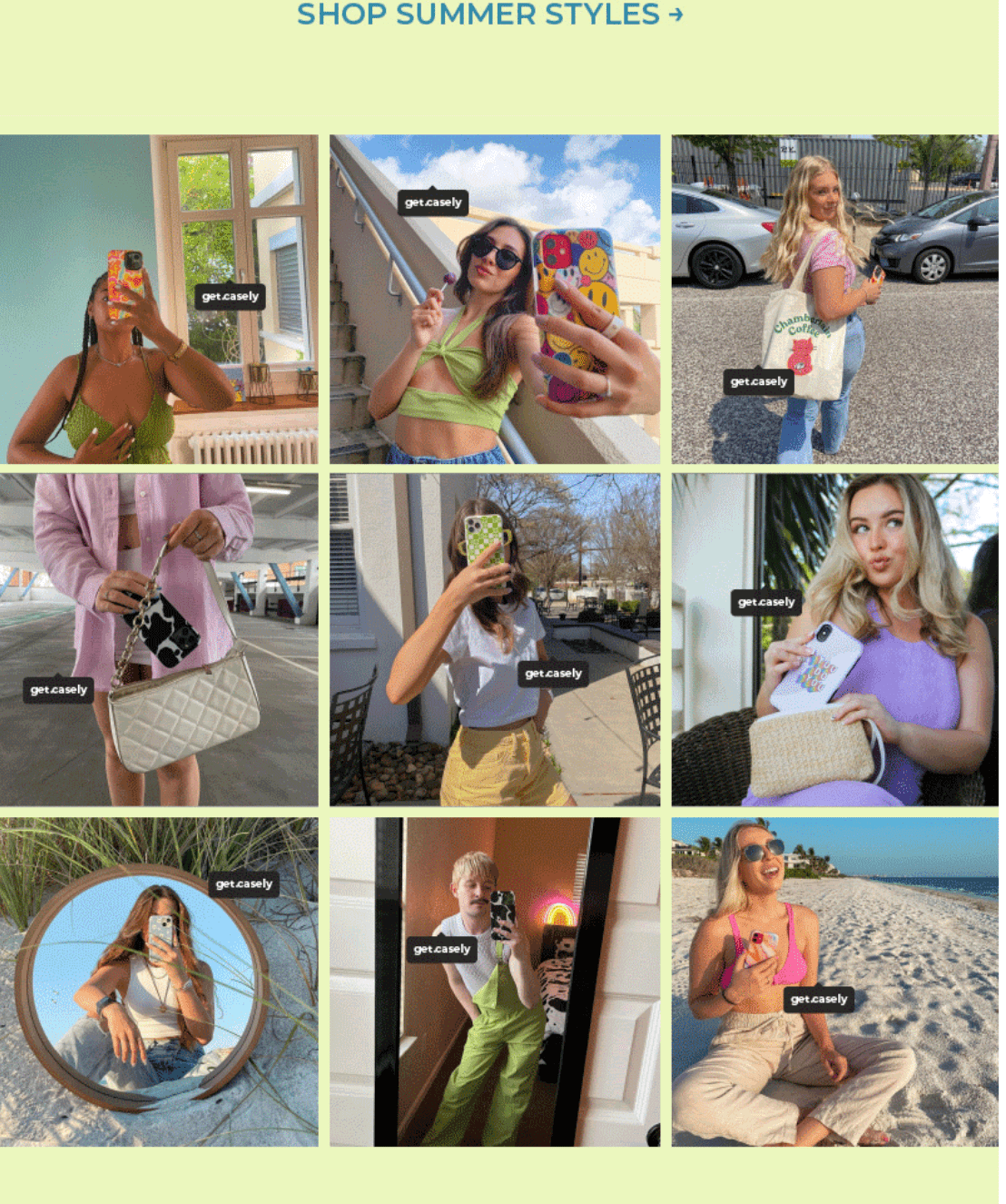
Share your Milestones
People can either form a positive or a negative connection with your brand. According to Oberlo, 66% of consumers think transparency is one of the most important brand qualities. Email is the perfect avenue to share the milestones. Sharing your wins may seem too self-righteous and sharing your losses may seem too personal, but your customers will appreciate the honesty.
By sharing the milestones you invite people to feel like they are on a journey with you. Share the highs and lows of building a business either through a newsletter format or a direct email that is written by a team member or CEO. Whether you're starting out your business or scaling to the next level, sharing your wins and losses offers transparency, which builds a community.
- Have the supply chain issues affected your inventory? Share that.
- Did a customer leave a negative comment or review? There was probably a mix-up with an order or you’re short-staffed? Communicate it with your community.
Share and reassure your customers that you are with them every step of the way. Crated with Love and Palm Bites are two merchants that shared milestones, the next product for one company and another explaining the beginnings of their story.
Crated with Love, launched a Kickstarter through email that let their community know they had the opportunity to back a new product. They effectively communicated what the product was and how their community could get involved with a clear call to action.
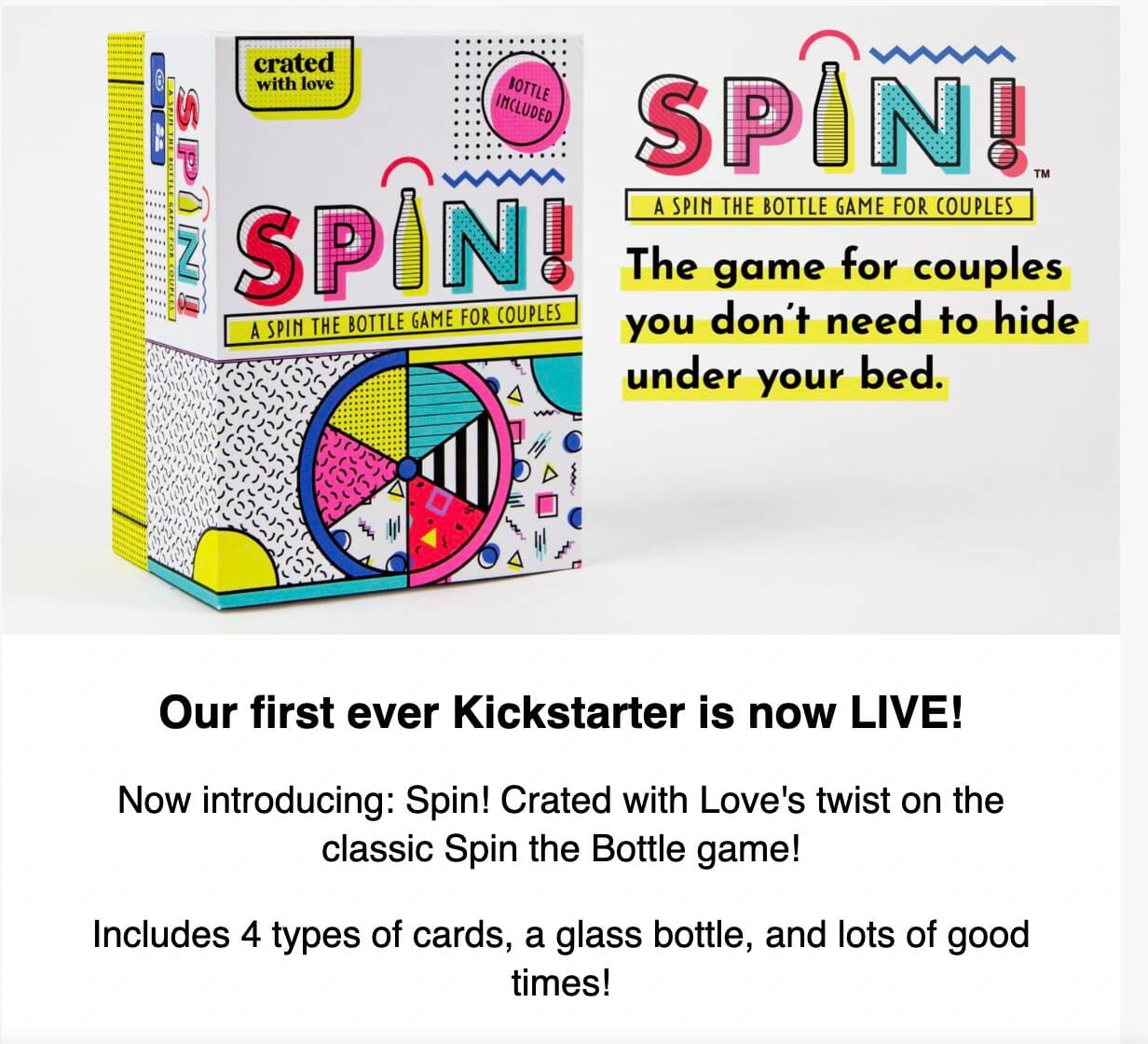
Similarly, Palm Bites brought people into their journey by sharing the brand's beginnings and the reason why they started the company in the first place. It was simple, from the co-founder himself, and even offered a discount code within the email.
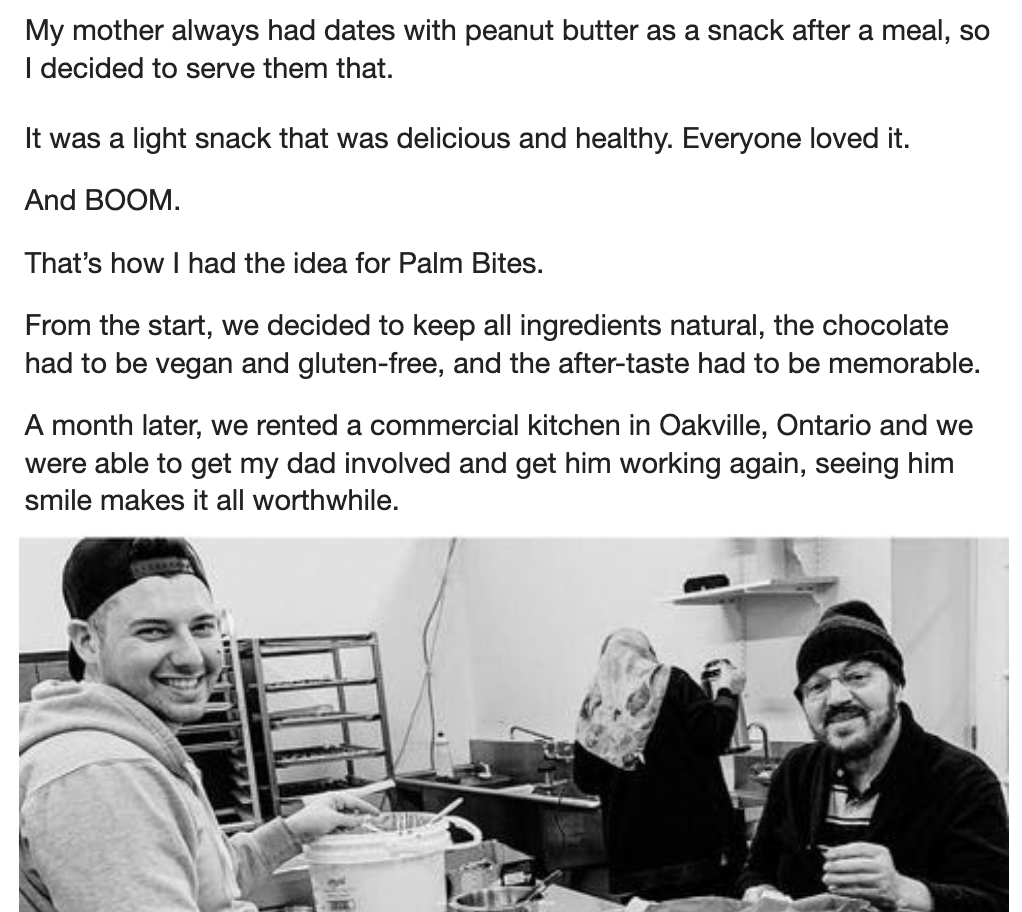
Start building your brand community through your customers’ inbox
Building a brand community doesn't have to be hard. A brand community is built upon trust, transparency, and offering a great experience. Mix that in with some great email marketing campaigns, and you are on your way to building something incredible. One of the qualities of a community is the sense of unity that a shared purpose can bring, and that is the key to building a lasting community that supports your brand every step of the way.










